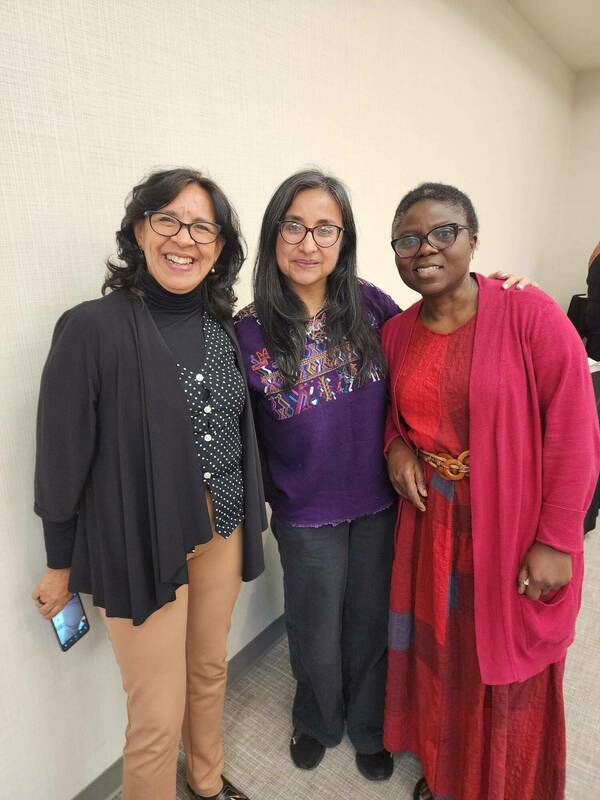
From May 31-June 2, in Plymouth, Michigan, the Catholic Peacebuilding Network gathered a working group of women peacebuilders to discuss ways to advance women’s leadership in Catholic peacebuilding. Worldwide, women’s leadership animates a significant amount of peacebuilding work, both inside and outside of the Catholic community. The meeting examined ways to increase opportunities for such women, ways to make their stories more widely known, and ways to share their wisdom and experience.
Maryann Cusimano Love, associate professor of International Relations at The Catholic University of America, helped set the context of the meeting by observing that some of the peacebuilding work done by women, and also by religious actors in general, is “accidental,” that is an immediate response to an immediate need when conflict and violence emerge. Love noted that in response, the Catholic Peacebuilding Network has operated to help fill in the “missing middle” between the grassroots level and higher levels of policymaking and negotiation: “We work to support peacebuilders in areas of war to enhance capacity or resources to really be able to be more effective at the strategic level.” The meeting addressed several of the problems that arise when women are excluded from strategic levels of peacebuilding, including lack of attention to gender-based violence, women being excluded from resources and benefits as peace agreements are implemented, and the loss of women’s distinct strengths and viewpoints.

The meeting also highlighted the upcoming twenty-fifth anniversary of UN Security Council Resolution 1325, or the Women, Peace, and Security Agenda. Ambassador (ret.) Susan D. Page, director of the Weiser Diplomacy Center at the University of Michigan, said that while the resolution did clearly affirm the importance of women for peacebuilding, and set a baseline for what UN member states must do to enhance women’s involvement in peacebuilding, there is still a long way to go. For example, Page noted, “Sometimes what happens is – whether it's the UN, a foreign government or some other high-level organization leading efforts to end a war – the mediation team, frequently comprising mostly men, comes into the conflict area, but they are not aware of the local peacebuilding efforts, often led by women at the grassroots level.” That lack of coordination weakens the overall peace effort and fails to build upon and learn from the work women are already doing in a particular locale, let alone the resources and persons involved.
Representatives from Catholic Relief Services, Caritas Internationalis, the Community of Sant’Egidio, and Pax Christi International shared stories about initiatives to accompany women peacebuilders and promote women’s leadership. For example, Caritas Internationalis presented a new booklet on women’s leadership and Catholic Social Teaching, and Catholic Relief Services in the Philippines described programming that has trained 500 women in political skills so that they can be more involved in peacebuilding efforts.
The Catholic Peacebuilding Network coordinated this meeting as part of a new initiative to study and strengthen the leadership of women in Catholic peacebuilding. It was sponsored by the Kroc Institute for International Peace Studies, part of the Keough School of Global Affairs at the University of Notre Dame, and hosted by the Pulte Family Charitable Foundation’s Humanitarian Hotels.
Originally published by at cpn.nd.edu on June 06, 2024.